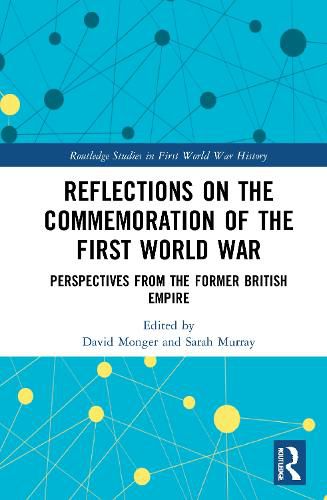Readings Newsletter
Become a Readings Member to make your shopping experience even easier.
Sign in or sign up for free!
You’re not far away from qualifying for FREE standard shipping within Australia
You’ve qualified for FREE standard shipping within Australia
The cart is loading…






The First World War’s centenary generated a mass of commemorative activity worldwide. Officially and unofficially; individually, collectively and commercially; locally, nationally and internationally, efforts were made to respond to the legacies of this vast conflict. This book explores some of these responses from areas previously tied to the British Empire, including Australia, Britain, Canada, India and New Zealand. Showcasing insights from historians of commemoration and heritage professionals it provides revealing insider and outsider perspectives of the centenary. How far did commemoration become celebration, and how merited were such responses? To what extent did the centenary serve wider social and political functions? Was it a time for new knowledge and understanding of the events of a century ago, for recovery of lost or marginalised voices, or for confirming existing cliches? And what can be learned from the experience of this centenary that might inform the approach to future commemorative activities? The contributors to this book grapple with these questions, coming to different answers and demonstrating the connections and disconnections between those involved in building public knowledge of the ‘war to end all wars’.
$9.00 standard shipping within Australia
FREE standard shipping within Australia for orders over $100.00
Express & International shipping calculated at checkout
The First World War’s centenary generated a mass of commemorative activity worldwide. Officially and unofficially; individually, collectively and commercially; locally, nationally and internationally, efforts were made to respond to the legacies of this vast conflict. This book explores some of these responses from areas previously tied to the British Empire, including Australia, Britain, Canada, India and New Zealand. Showcasing insights from historians of commemoration and heritage professionals it provides revealing insider and outsider perspectives of the centenary. How far did commemoration become celebration, and how merited were such responses? To what extent did the centenary serve wider social and political functions? Was it a time for new knowledge and understanding of the events of a century ago, for recovery of lost or marginalised voices, or for confirming existing cliches? And what can be learned from the experience of this centenary that might inform the approach to future commemorative activities? The contributors to this book grapple with these questions, coming to different answers and demonstrating the connections and disconnections between those involved in building public knowledge of the ‘war to end all wars’.